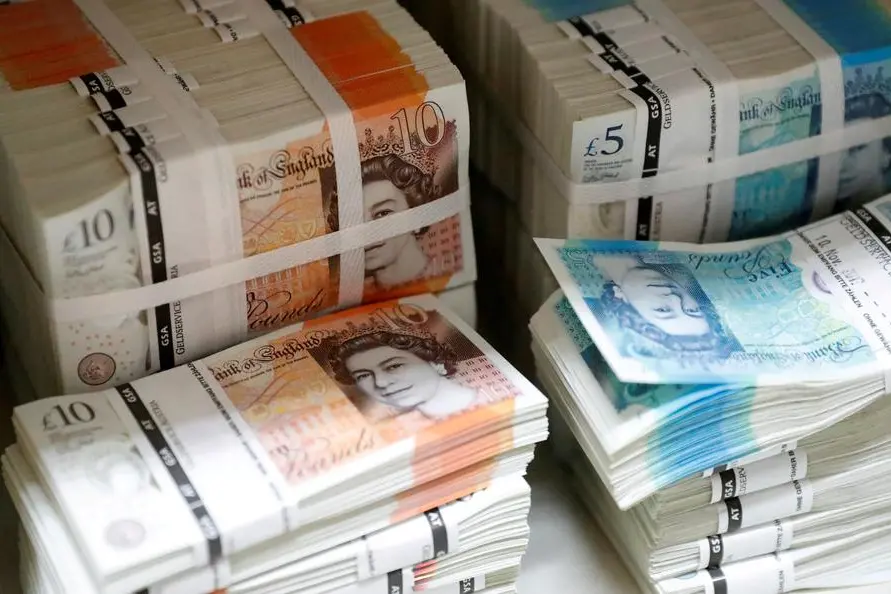PHOTO
The pound eased on Monday as mounting concern over the possibility of a U.S. recession sent currency investors fleeing for the comparative safety of the Swiss franc and the euro.
A series of data last week, culminating in Friday's U.S. monthly employment report, has ignited concern that the world's largest economy may be slowing more quickly than many had expected.
Traders are now placing a 90% chance that the Federal Reserve will cut interest rates by half a point in September to ward off further economic deterioration.
The Bank of England, meanwhile, cut UK rates for the first time in four years last week, which has dented sterling.
But the unease coursing through global markets has resulted in hefty flows into short-term U.S. government bonds, pushing yields down far more quickly than those on UK government bonds, thereby delivering the pound a degree of stability.
U.S. two-year Treasury yields have fallen 60 basis points (bp) since last Monday, compared with a 35-bp drop in two-year gilt yields in that timeframe.
Sterling was down 0.3% on Monday at $1.2767 and down 0.6% against the euro at 85.72 pence.
"The pound has been undermined by the marked deterioration in global investor risk sentiment," MUFG strategist Lee Hardman said.
Sterling was down 1.5% against the Swiss franc, a classic safe-haven, at 1.0811 francs.
Hardman noted the pound has been one of the worst performing major currencies over the last week, in part because of the BoE cut, but also as investors have trimmed their exposure to the currency.
Sterling has fallen 0.8% against the dollar in the last five trading days, compared with a 1.2% rise in the euro and a 0.5% rise in the New Zealand dollar.
Short-term investors also delivered the first cut to their bullish holdings of sterling in a month last week, according to data from the U.S. markets regulator.
Speculators cut the net long position in sterling futures by $2.53 billion to $8.947 billion. This was still not far off the previous week's $11.468 billion record long.
"It leaves the pound vulnerable to further weakness in the near-term from the scaling back of excessive long positioning," Hardman said.
The big mover in the past couple of weeks has been the Japanese yen, which has benefitted from a rise in domestic interest rates, just as traders prepare for the Fed to cut rates.
The yen has gained over 7.3% against the dollar and a similar amount against sterling.
(Reporting by Amanda Cooper; Editing by Mark Potter)





















